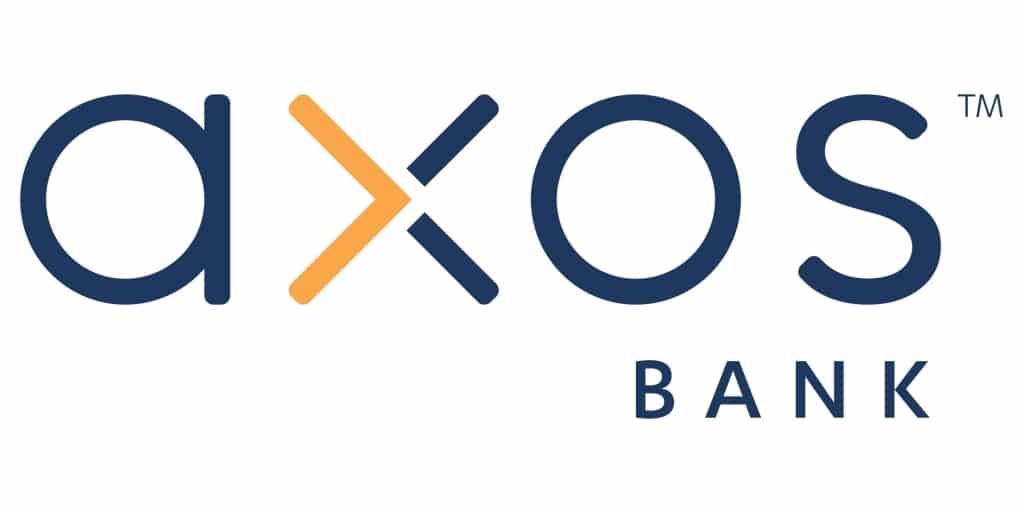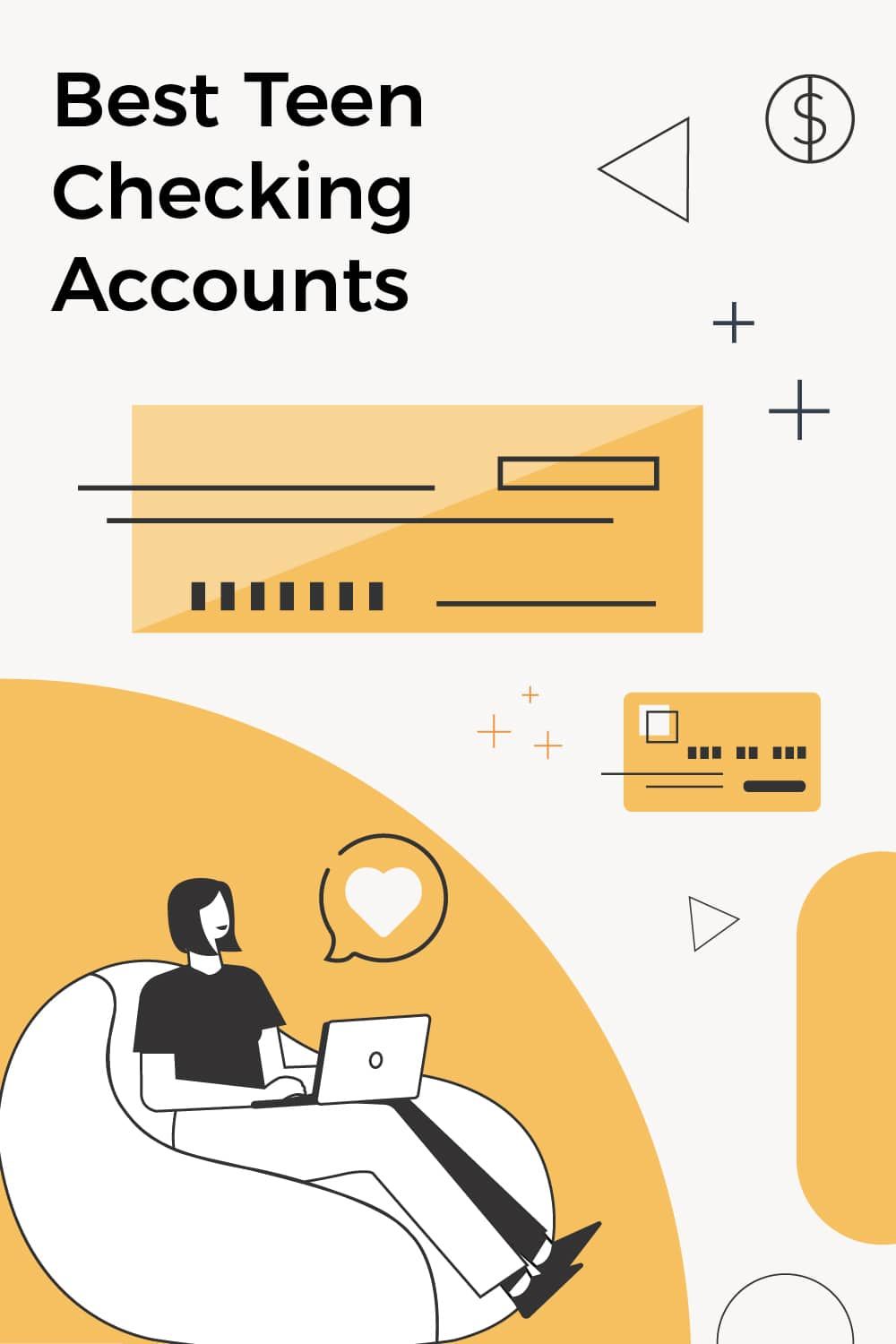
By the time your child reaches middle school, they are likely ready to learn the blocking and tackling of money management. Many teens earn money regularly (even if they don’t have a job), and they probably have at least one regular bill to pay (their cell phone). Helping your teen open a checking account is a great way to set them up for a lifetime of success.
Teen checking accounts share most of the features of adult checking accounts with a few exceptions. Teen checking accounts are typically joint accounts. That means that you and your teen have shared access to the funds in the account. Parents can typically monitor spending in teen accounts, and they may even be able to lock a debit card or prevent withdrawals from the accounts.
We’ve reviewed the top teen checking accounts, and we explain how parents can use this tool to help their kids build money management skills. Note, some of these may be banking accounts - meaning they have spending and saving features, as well as other features - but they aren't hosted at a bank, but rather another financial firm.
Related: If you're looking for an account for someone younger, check out these starter accounts for kids.
Best Banking Accounts For Teenagers
These account options represent the best checking accounts for teens. We have not included prepaid debit cards in this list, even though we like several prepaid debit products (think Greenlight). You can find our full list of the best prepaid debit cards for kids and families here.
Note: The account offers that appear on this site are from companies from which The College Investor receives compensation. This compensation may impact how and where products appear on this site (including, for example, the order in which they appear). The College Investor does not include all companies or all banking offers available in the marketplace.
1. MPH Bank First Student Checking
The MPH Bank First Student checking account is an online checking account for kids and teens aged 10-24. Parents can determine debit card, mobile deposit limits, funds transfer, and more.
The account is great for teens because it also has access to 55,000 fee-free ATMs, Zelle payments (for account holders over 18), and more.
2. Capital One MONEY Teen Checking Account
The Capital One MONEY teen checking account is an online checking account for kids and teens aged 8-18. The fee-free account can be linked to parent accounts so that parents can “reward” savings behavior (by matching certain savings goals) or transfer money to the account.
Parents can also monitor their teen’s spending through an app designed specifically for parents. Teens get an app to keep them on track with their goals.

3. Chase High School Checking
Chase High School Checking allows teens to open a checking account at a full-service bank. Accounts have to be opened in a branch, but teens with an account can also open a fee-free savings account at Chase. When your teen is under 19 years old, the account allows parents to monitor spending and set up transaction alerts.
When your child turns 19 years old, the account converts to a Chase Total Checking account. By that time, teens should have solid financial habits in place.

4. Axos Bank First Checking
Axos Bank First Checking is an interest-earning checking account for teens. The account has no fees, and it reimburses up to $12 of domestic ATM fees reimbursed each month. This is the only account we’ve reviewed that allows adults to set up a joint account with any teen, not just their children. This is valuable for caregivers who aren’t legal guardians.
5. Alliant Credit Union Teen Checking Account
Most checking accounts offer little in the way of interest, but Alliant’s Teen checking account offers a .25% APY. On top of the yield, the fee-free account reimburses up to $20 in out-of-network ATM fees each month.
Overall, the account is a great option for teens who want to keep their money in a credit union rather than a big bank.

How Parents Can Use Teen Checking Accounts To Help Their Kids
A checking account by itself won’t teach your kids valuable money lessons. These are a few things parents can do to ensure their teens are learning valuable financial lessons before they leave for college or a career.
- Encourage teens to earn money. Most parents want their teens to focus their attention on academics, but teens can put up good grades and earn money in some capacity. Parents can help teens focus on ways to earn money that fit in their teen’s schedules. This could include doing odd jobs on weekends, working after school, or taking a job for the summer.
- Put teens in charge of paying for reasonable expenses. As kids enter their teen years, they can likely earn a few hundred dollars most months. This gives them an income to help them support their lifestyle. Parents can teach their kids about money management, by having their kids pay for certain expenses. For example, a young teen may be able to afford a $15 per month cell phone payment. Those who are a bit older can probably afford to pay for their clothing. Teens who start driving can work a bit more and can afford to pay for gas in their car and to pay for a portion of insurance. Giving teens financial responsibility will help them weigh their wants with their needs.
- Review spending once a month. Teen checking accounts allow parents to see their teen’s spending patterns. Parents can use some of the checking account’s built-in features to show their teens where their money is going. Teens may be shocked to see $175 spent at Starbucks, or they may be perfectly happy with their spending. Regardless of a teen’s actual spending, the regular check-ins allow parents to ask questions about how the teens felt about their spending, and whether they want to direct more money to longer-term goals.
- Set up auto-draft to saving or investment accounts. Once teens are regularly earning money, they can set up automatic rules to deposit funds into saving or investment accounts. This can help students put money aside for big purchases (like a new phone, a car, or college tuition) or invest for the long run. Plus, accounts like Fidelity's Youth Account can help with this!
Final Thoughts
A great checking account is the basis of a great financial life. A teen checking account can help parents teach their teens' valuable financial lessons while also giving teens the freedom to learn on their own. Teens who get into the practice of reviewing their spending and setting money aside for savings goals will have solid financial footing going into their young adult years.

Robert Farrington is America’s Millennial Money Expert® and America’s Student Loan Debt Expert™, and the founder of The College Investor, a personal finance site dedicated to helping millennials escape student loan debt to start investing and building wealth for the future. You can learn more about him on the About Page or on his personal site RobertFarrington.com.
He regularly writes about investing, student loan debt, and general personal finance topics geared toward anyone wanting to earn more, get out of debt, and start building wealth for the future.
He has been quoted in major publications, including the New York Times, Wall Street Journal, Washington Post, ABC, NBC, Today, and more. He is also a regular contributor to Forbes.
Editor: Clint Proctor Reviewed by: Richelle Hawley


